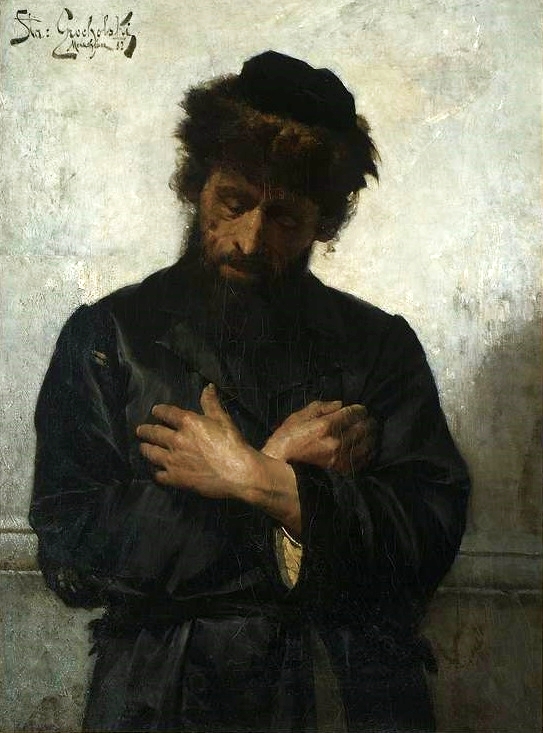|
וַיְבָ֣רֶךְ עֶזְרָ֔א אֶת־יְהֹוָ֥ה הָאֱלֹהִ֖ים הַגָּד֑וֹל
וַיַּֽעֲנ֨וּ כׇל־הָעָ֜ם אָמֵ֤ן ׀ אָמֵן֙ בְּמֹ֣עַל יְדֵיהֶ֔ם
וַיִּקְּד֧וּ וַיִּֽשְׁתַּחֲו֛וּ לַיהֹוָ֖ה אַפַּ֥יִם אָֽרְצָה׃ (נחמיה ח:י)
|
And ‘Ezra blessed Adonai the great God,
and all the people answered “Amen, amen,” as they lifted their hands,
and they bowed and prostrated before the Cause, face to the ground.
|
|
בִּפְרֹ֤עַ פְּרָעוֹת֙ בְּיִשְׂרָאֵ֔ל
בְּהִתְנַדֵּ֖ב עָ֑ם
בָּֽרְכ֖וּ יְהֹוָֽה׃ (שופטים ה:ב)
|
As the rampages rampage in Israel,
as the people ennoble,
bless ye Adonai!
|
|
לִבִּי֙ לְחוֹקְקֵ֣י יִשְׂרָאֵ֔ל
הַמִּֽתְנַדְּבִ֖ים בָּעָ֑ם
בָּרְכ֖וּ יְהֹוָֽה׃ (שופטים ה:ט)
|
My heart to the lawmakers of Israel,
the nobles of the people,
bless ye Adonai!
|
|
בָּרְכ֖וּ עַמִּ֥ים ׀ אֱלֹהֵ֑ינוּ
וְ֝הַשְׁמִ֗יעוּ ק֣וֹל תְּהִלָּתֽוֹ׃ (תהלים סו:ח)
בְּֽ֭מַקְהֵלוֹת בָּרְכ֣וּ אֱלֹהִ֑ים
אֲ֝דֹנָ֗י מִמְּק֥וֹר יִשְׂרָאֵֽל׃ (תהלים סח כז)
|
Bless, peoples, our God,
and listen to the sound of Divine praise!
In the congregations bless ye God,
my Lord, from the font of Israel!
|
|
בָּרְכ֥וּ יְהֹוָ֗ה מַלְאָ֫כָ֥יו
גִּבֹּ֣רֵי כֹ֭חַ עֹשֵׂ֣י דְבָר֑וֹ
לִ֝שְׁמֹ֗עַ בְּק֣וֹל דְּבָרֽוֹ׃
בָּרְכ֣וּ יְ֭הֹוָה כׇּל־צְבָאָ֑יו
מְ֝שָׁרְתָ֗יו עֹשֵׂ֥י רְצוֹנֽוֹ׃
בָּרְכ֤וּ יְהֹוָ֨ה ׀ כׇּֽל־מַעֲשָׂ֗יו
בְּכׇל־מְקֹמ֥וֹת מֶמְשַׁלְתּ֑וֹ
בָּרְכִ֥י נַ֝פְשִׁ֗י אֶת־יְהֹוָֽה׃ (תהלים קג:כ-כב)
|
Bless ye Adonai, God’s messengers,
great strong ones, doing God’s word,
to hear the sound of God’s word.
Bless ye Adonai, all God’s multitudes,
Divine guardians, doing God’s will.
Bless ye Adonai, all God’s works,
in all the places of God’s kingship;
bless, my soul, Adonai!
|
|
בֵּ֣ית יִ֭שְׂרָאֵל
בָּרְכ֣וּ אֶת־יְהֹוָ֑ה
בֵּ֥ית אַ֝הֲרֹ֗ן
בָּרְכ֥וּ אֶת־יְהֹוָֽה׃
בֵּ֣ית הַ֭לֵּוִי
בָּרְכ֣וּ אֶת־יְהֹוָ֑ה
יִֽרְאֵ֥י יְ֝הֹוָ֗ה
בָּרְכ֥וּ אֶת־יְהֹוָֽה׃
בָּ֘ר֤וּךְ יְהֹוָ֨ה ׀ מִצִּיּ֗וֹ
שֹׁ֘כֵ֤ן יְֽרוּשָׁלִָ֗ם
הַֽלְלוּ־יָֽהּ׃ (תהלים קלה:יט-כא)
|
House of Israel,
bless ye Adonai!
House of Aaron,
bless ye Adonai!
House of Levi,
bless ye Adonai!
Adonai-fearers,
bless ye Adonai!
Bless Adonai from Ẓion,
Jerusalem-dwelling,
praise ye Yah!
|
|
וַיֹּאמְר֣וּ הַלְוִיִּ֡ם
יֵשׁ֣וּעַ וְ֠קַדְמִיאֵ֠ל
בָּנִ֨י חֲשַׁבְנְיָ֜ה שֵׁרֵֽבְיָ֤ה
הֽוֹדִיָּה֙ שְׁבַנְיָ֣ה פְתַֽחְיָ֔ה
ק֗וּמוּ בָּרְכוּ֙ אֶת־יְהֹוָ֣ה אֱלֹֽהֵיכֶ֔ם
מִן־הָעוֹלָ֖ם עַד־הָעוֹלָ֑ם
וִיבָֽרְכוּ֙ שֵׁ֣ם כְּבֹדֶ֔ךָ וּמְרוֹמַ֥ם
עַל־כׇּל־בְּרָכָ֖ה וּתְהִלָּֽה׃ (נחמיה ט:ה)
|
And the Levites —
Yeshua’ and Qadmiel,
Bani, Ḥashavniah, Shereviah,
Hodijah, Shevaniah, Petaḥiah — said,
“Arise, bless ye Adonai your God,
from eternity to eternity:
And may Your glorious name be blessed and exalted
over all bessings and praises!”
|

